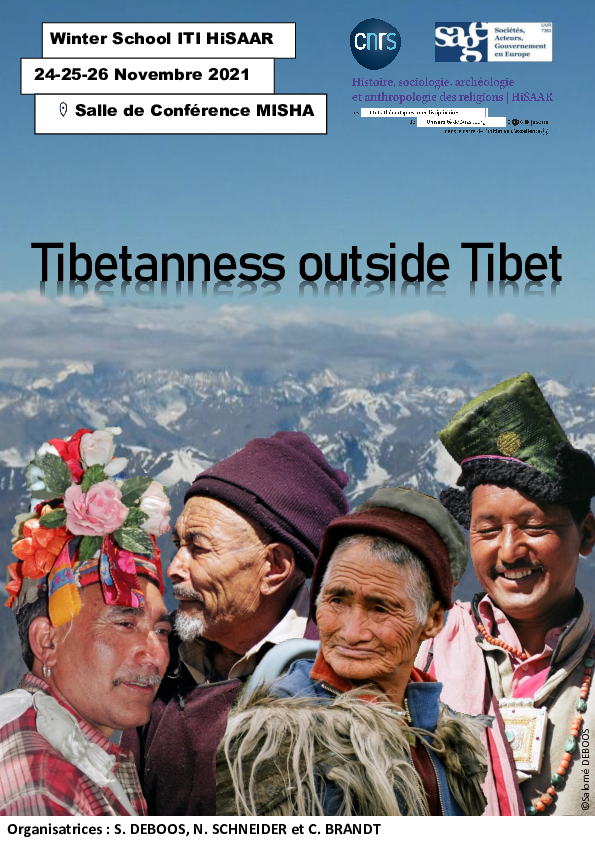Due to its enormous expansion of the networks established by the Tibetan Empire between the 7th and
9th century, Tibetan culture, language, and religion spread across a vast territory, reaching from Ladakh
in the west to Dartsedo in the east, and covering parts of present-day Nepal (Mustang), as well as regions
today administered by Pakistan (Gilgit-Baltistan). The area where Tibetic languages are still spoken,
and where cultural traits, which can be identified as being of Tibetan origin goes far beyond the current
Tibetan Autonomous Region and further Tibetan autonomous prefectures currently administered by the
People’s Republic of China. Thus, scholars often use the term “ethnic Tibet” to define this entire zone
to distinguish it from today’s geopolitical entity of Tibet.
A first workshop, which took place in January 2020 at the University of Bonn, aimed to discuss in detail
the various forms of assertion or rejection of belonging to a real or imagined wider Tibetan community
among speakers of Tibetic languages outside of Tibet. In the final discussion, we concluded that
Tibetanness is nowadays evoked in various ways by Tibetic speaking communities either to emphasise
distinctiveness from the majority (non-Tibetic) population in order to gain political recognition or to
reject it when perceived as a threat to cultural or geopolitical sovereignty.
This follow-up winter school proposes to continue the dialogue by exploring in particular how religious
and political identity building strategies are surrounding and sometimes interwoven with affirmations
of Tibetanness.
This winter school is part of the global scholar program History, Sociology, Archeology and
Anthropology of Religion, which studies, inter alia, “Religious re-structuring: Internal transformations
and external interactions”. It is part of the third axis of this program and focuses precisely on religion
and politics. While “religion” and “politics” are often perceived as two antagonistic forces, this is not
the case for Tibetan areas (the Plateau and the so-called greater Tibet), where they were always
combined in one way or another. However, this is less the case for the peripheral areas where Buddhism
is not practiced by the majority of the population. The interdisciplinary approach may give some trends
to a better understanding how religious systems, here mainly Buddhism, but not only (eg Islam in
Baltistan or in Surru Valley) create, structure, and restructure social, political, ideological, doctrinal,
and even economical organisation of communities and societies.
We thus invite scholars of different disciplines studying Tibetic speaking groups with various religious
affiliations in present-day Bhutan, China, India, Nepal, and Pakistan, and focussing on identity
(trans)formation processes among these groups, to address the following questions: Is there a common
political goal among the different ethnic groups in this part of the Himalayas? What kind of strategies
are ethnic groups using in order to gain more recognition especially political? How do geopolitical
realities, aspects and endeavors challenge identity building around Tibetanness? Is there a perpetuation
of the Tibetan cultural and religious chauvinism in the Himalayan region? How is the nexus between
religion and politics in contemporary Tibetic speaking communities shaped by the state they live in?
If the current pandemic situation allows, we will have our winter school at the University of Strasbourg.
Otherwise, it will be conducted online. We will cover travelling and accommodation expenses.
Organisers: Prof. Dr. Salomé Deboos (SAGE CNRS UMR 7363, University of Strasbourg), Prof. Dr.
Nicola Schneider (Department of South Asia and Himalaya, INALCO), Jun.-Prof. Dr. Carmen Brandt
(Department of South Asian Studies, University of Bonn).


